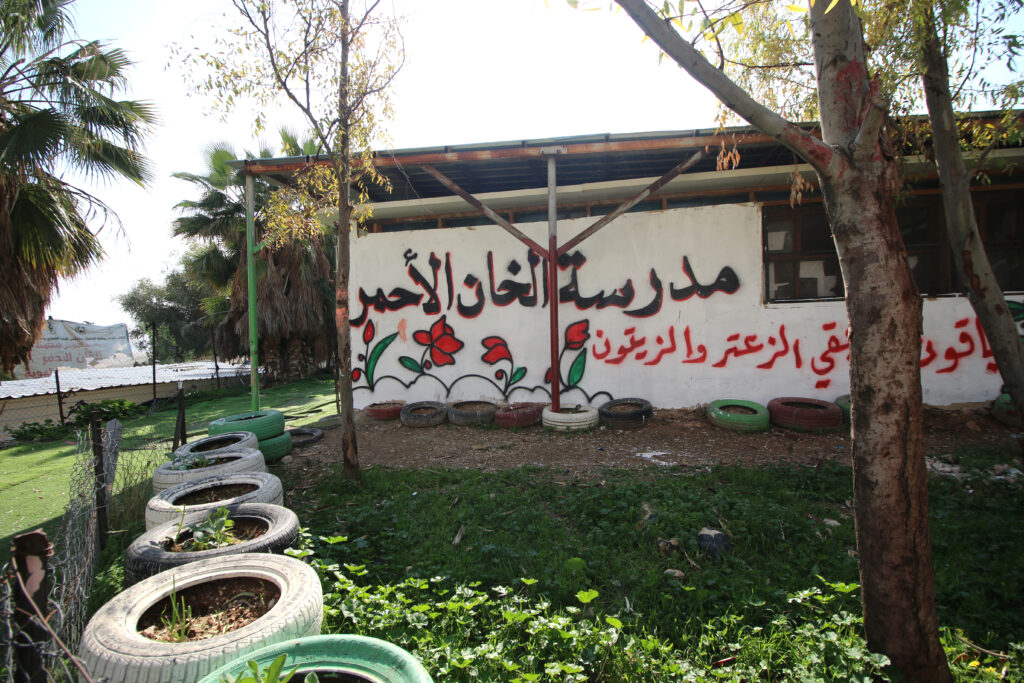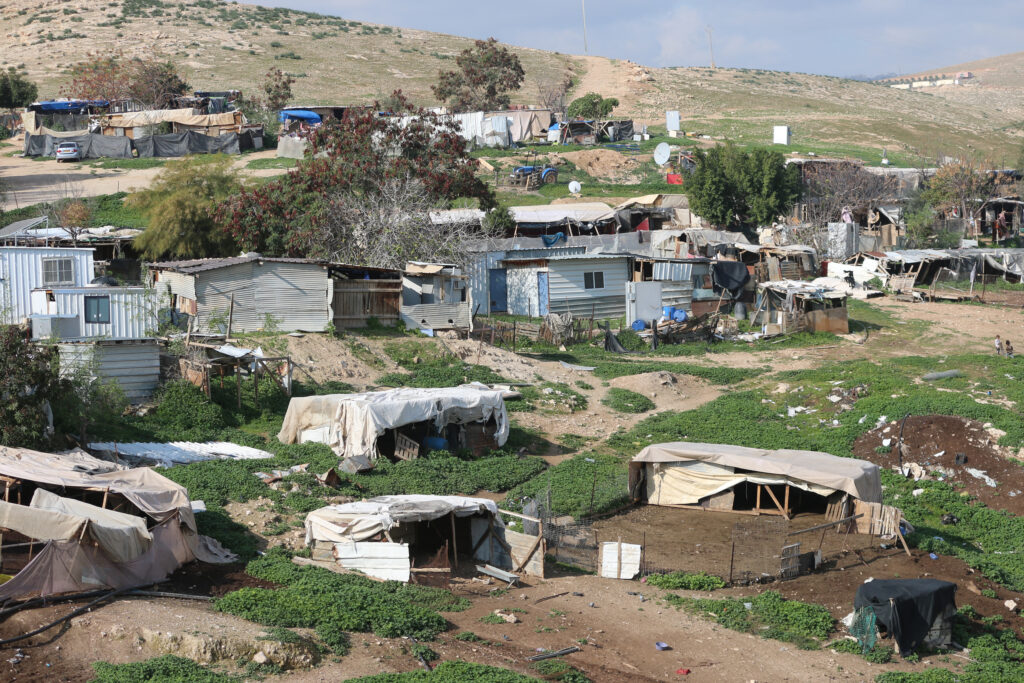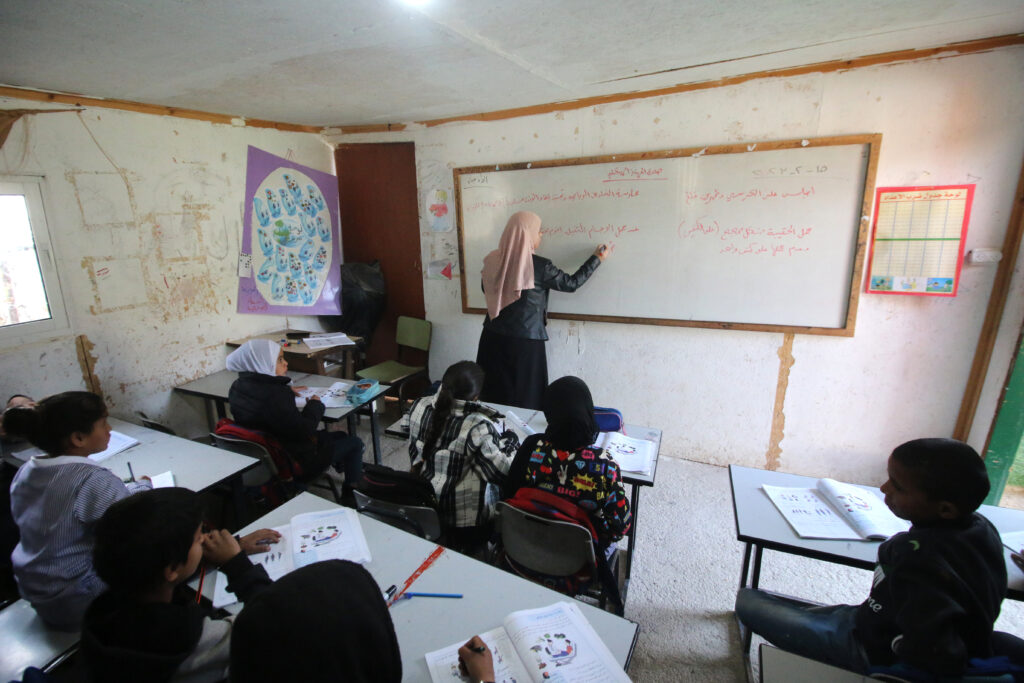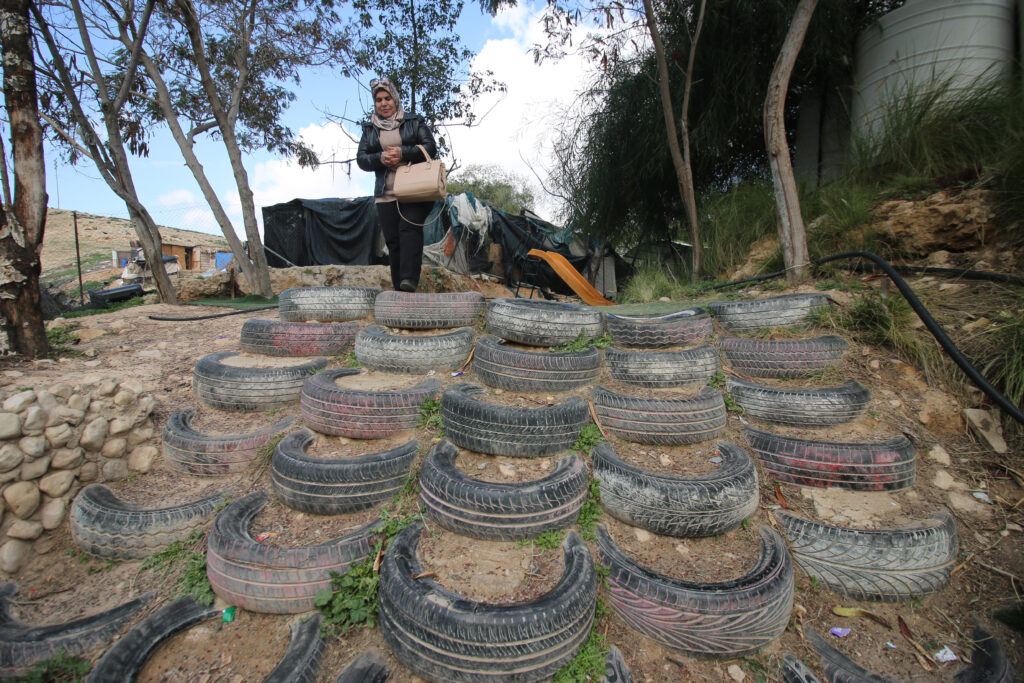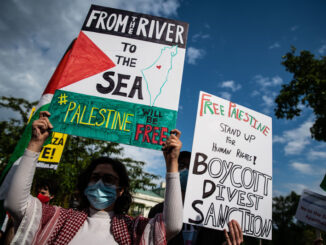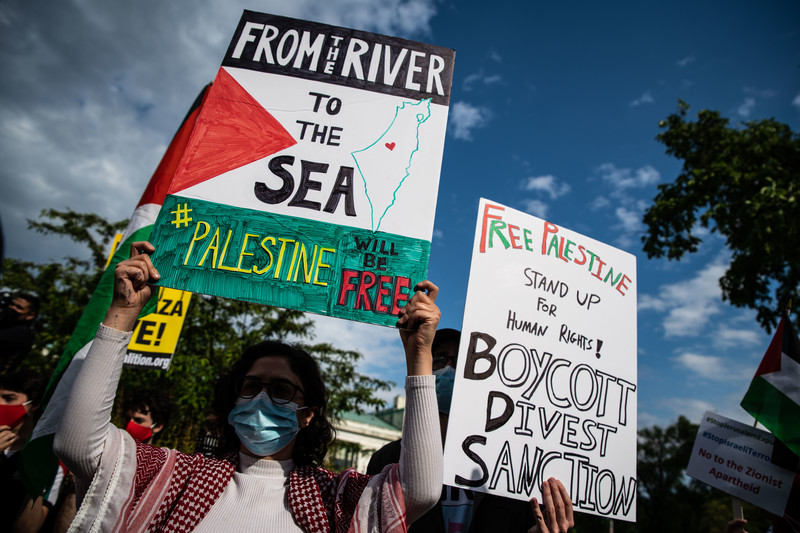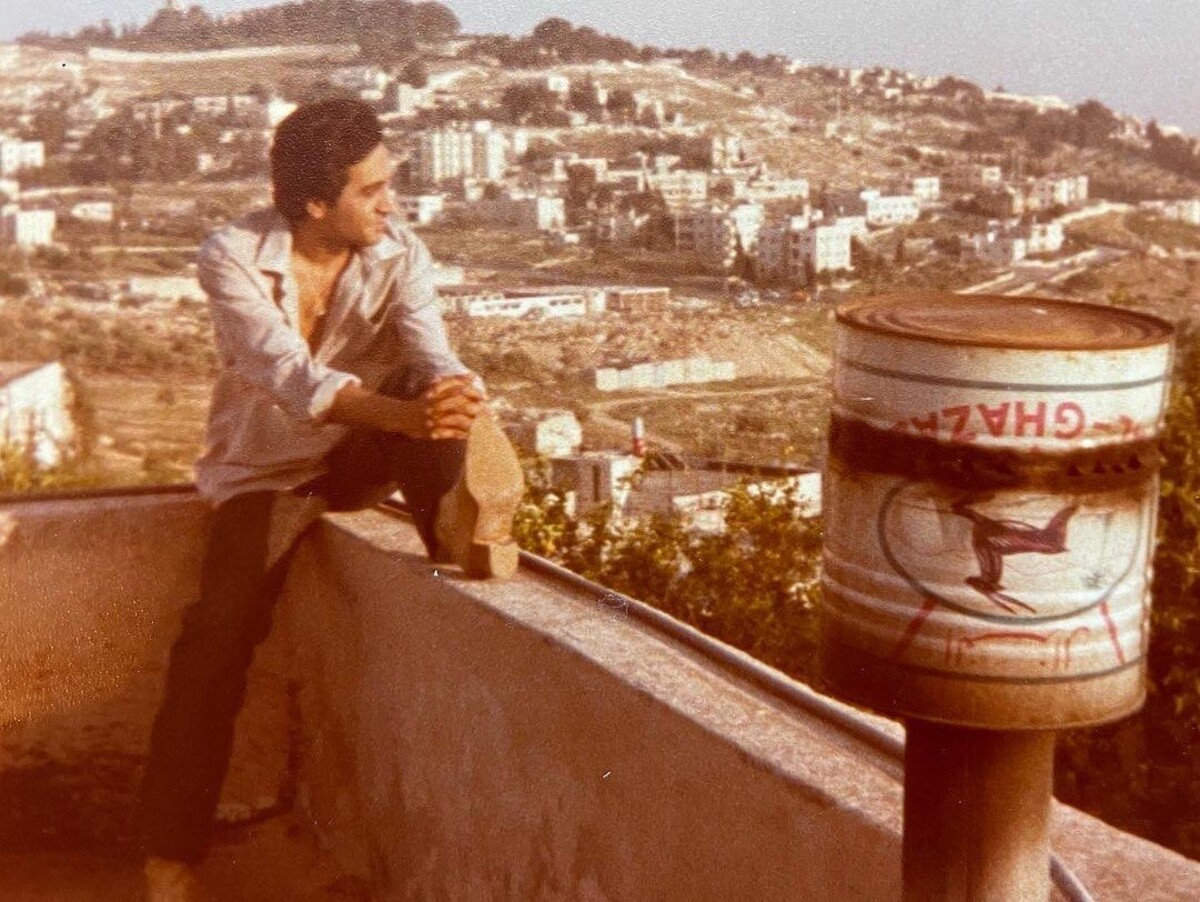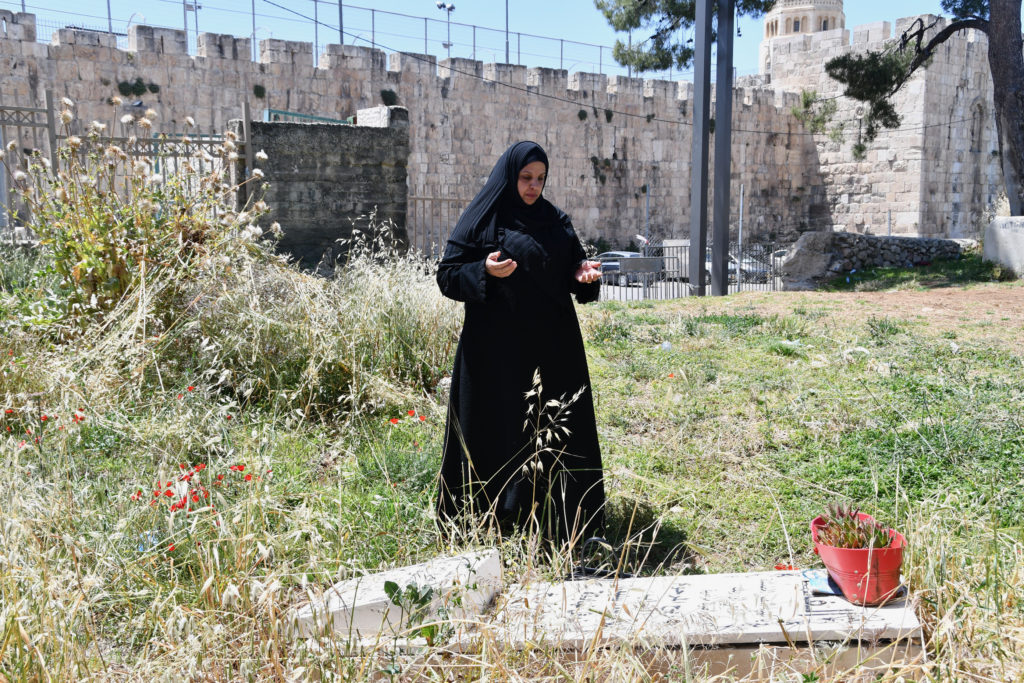
EAST JERUSALEM — Surrounded by bulldozers, Ola Nababta clung to her son’s grave to prevent Israeli authorities from razing his remains.
“Pour the earth over me and bury me beside him,” the 54-year-old told Israeli soldiers.
شاهد| المقدسية أم علاء نبابتة تحتضن قبر ابنها لحمايته من عمليات النبش والتجريف التي يجريها الاحتلال في المقبرة اليوسفية في القدس المحتلة. pic.twitter.com/ER2n0fJ3vD
— المركز الفلسطيني للإعلام (@PalinfoAr) October 25, 2021
That particular day in October, she was successful in stopping the Israeli government from exhuming her son’s grave. But more than six months later, al-Yusufiya cemetery in East Jerusalem remains under threat as the city’s government plans to build a promenade over the land, as part of a proposed “Bible Trail,” a string of national parks.
In February, the Jerusalem Municipality’s planning board rejected objections from Muslim religious authorities and Palestinian landowners against the municipality’s seizure order for part of the cemetery to construct the park. Court hearings are still ongoing as the parties debate the ownership of the cemetery and objections to the confiscation order.
‘Picnics Alongside Graves’
Mustafa Abu Zahra, head of the Committee for the Care of Islamic Cemeteries, described the municipality’s actions as an attack against graveyards and a violation of the Palestinian people’s rights.
“How can people go and have picnics on the side of graves?” Abu Zahra told Toward Freedom.
According to Abu Zahra, seven graves are located in the area set to be expropriated, with many more that are unmarked.
Part of the cemetery belongs to the Jerusalem Islamic Waqf, a Muslim body responsible for managing holy sites in East Jerusalem. The other section belongs to the el-Uweisat family. While the family’s section was a sheep market during most of the 20th century, it has since become a parking lot.
The Jerusalem Development Authority together with Israel’s Nature and Parks Authority (INPA) began construction in the cemetery last year, telling Toward Freedom they have received all of the necessary permits and court approvals for construction. In October, human bones were found during excavation works at the cemetery, sparking widespread protest. Nababta was one of those protecting their loved ones’ graves from Israeli bulldozers. Despite Palestinian resistance to the project, authorities finished building a fence dividing the cemetery and demolished a staircase in late 2021.
The municipality argues the area in question is defined as a public green space. “The graves that were shown in the media were built in the open public area outside the cemetery,” a spokesperson for the Jerusalem municipality told Toward Freedom. In 2014, Israel banned Palestinians from being buried in the cemetery and later poured concrete over around 40 graves.
“Nevertheless, it should be emphasized that no tomb was damaged during the works, and there is no intention to displace any grave, even if built illegally,” the spokesperson continued, adding the park is meant to improve Muslim residents’ quality of life and make the area more accessible.
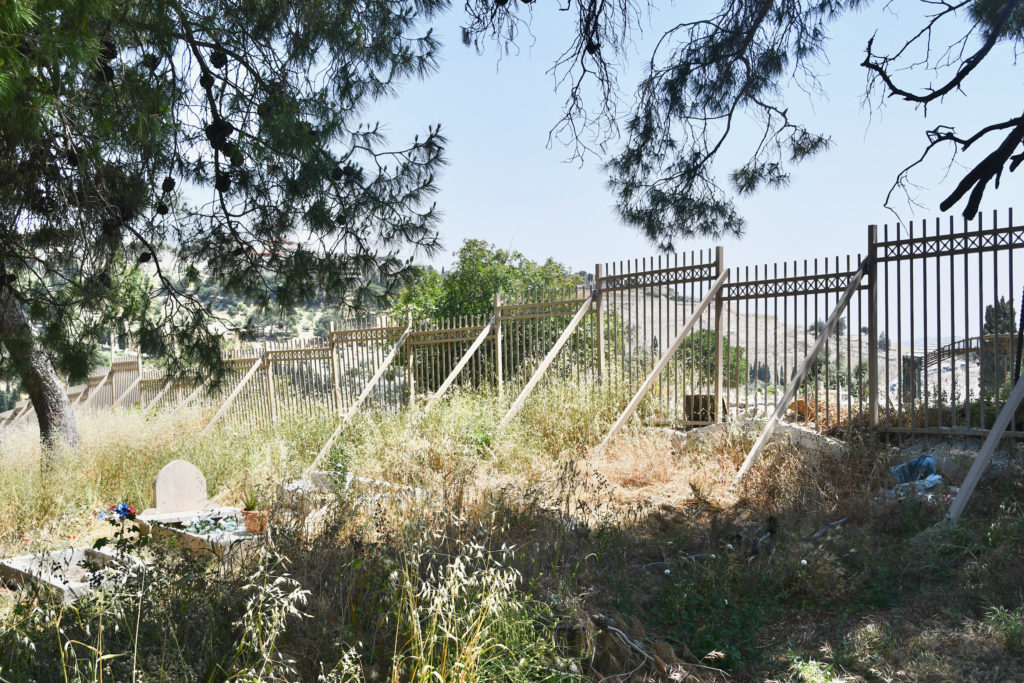
‘Zero Trust’
Al-Yusufiya cemetery was established at the beginning of Muslim rule over Jerusalem and expanded during the reign of Al-Nasir Salah Al-Din Yusuf—the landmark’s namesake. The graveyard is an extension of Bab al-Rahma cemetery, located next to Al-Aqsa Mosque Compound. It became known as Martyrs’ Cemetery after Palestinian and Jordanian soldiers who fought during the 1967 Six-Day War were buried there. A monument to the deceased soldiers is located inside the graveyard.
Abu Zahra explained the Waqf has a document dated before 1967 from the Arab municipality of Jerusalem’s master plan stating the land surrounding Al-Aqsa will be designated as a burial site. Israeli authorities, however, are using evidence from before 1963 in court. Abu Zahra asserted the master plan is the latest decision, thereby eliminating all prior rulings.
Nababta, a widow whose husband and son are buried in al-Yusufiya cemetery and whose other two sons are buried in Bab al-Rahma, said she received permits from the Waqf to bury her relatives in the graveyards. Even with the legal documentation, INPA spent years summoning Nababta for interrogation about her sons’ graves. The Israeli authorities alleged her sons were buried on property belonging to INPA.
After her son, Alaa Nababta, was laid to rest in al-Yusufiya in 2017, the Israeli Ministry of Health contacted her, demanding her son’s body be removed.
The communications stopped, though, when her husband passed away in 2019. Then, in 2021, her concerns resumed when she saw Israeli authorities exhuming graves on social media.
“Most of my sons were ex-prisoners. They suffered. One of them was killed [by Israeli forces]. One of my sons was a prominent activist within Jerusalem. So, I know all of these stories and I have zero trust toward Israelis,” Nababta said.
‘We’re Always Threatened’
Since Israel’s establishment in 1948, authorities have confiscated roughly 70 percent of Mamilla cemetery, a burial ground in West Jerusalem, to create a municipal park called Independence Park, plus main roads and a school. In recent years, the government has built tourist facilities and begun constructing the Museum of Tolerance over the burial ground.
Several other cemeteries have also been dug up around Jerusalem.
“We’re always threatened, even when we are dead,” Nababta said.
While construction in al-Yusufiya cemetery has subsided, the 54-year-old mother said she will not stay silent if the bulldozers return.
“[Israel] says it’s a park and I’m not sure who it’s going to be serving,” she said. “But what I know now is that, as Muslims, it’s serving us as a graveyard.”
Jessica Buxbaum is a Jerusalem-based freelance journalist reporting on Palestine and the Israeli occupation. You can follow her on Twitter at @jess_buxbaum.


